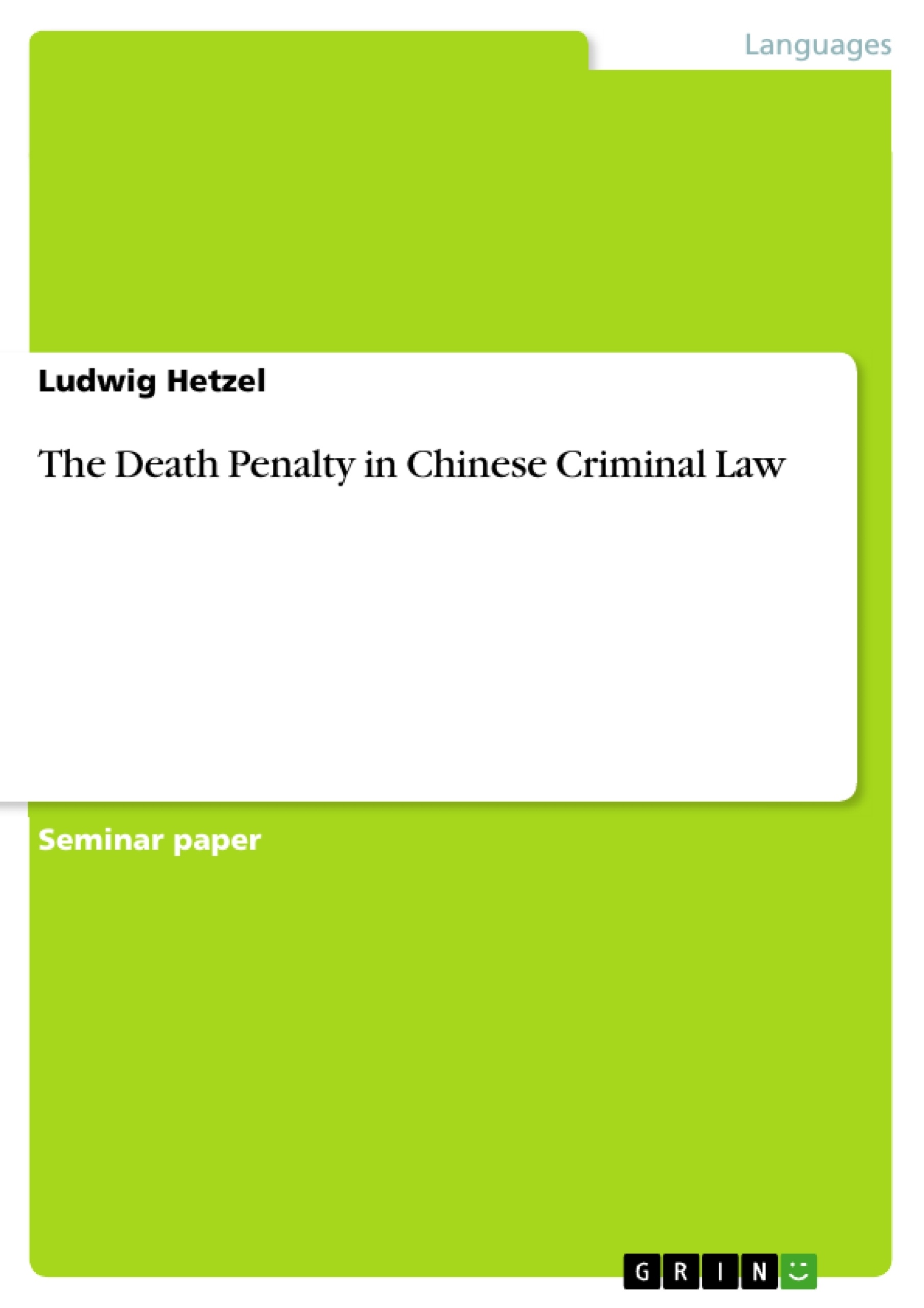In international discussions China is often criticized for its heavy use of the death penalty; so what is the legal basis for the capital punishment and the procedural background.
The Death Penalty in Chinese Criminal Law

Seminar Paper , 2009 , 11 Pages , Grade: A
Autor:in: Mag. Ludwig Hetzel (Author)
Orientalism / Sinology - Chinese / China
Excerpt & Details Look inside the ebook

